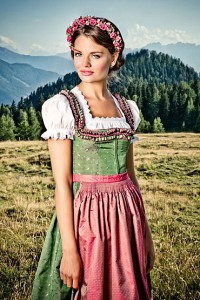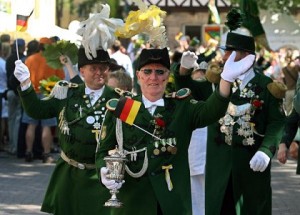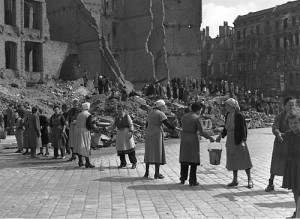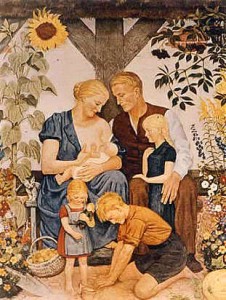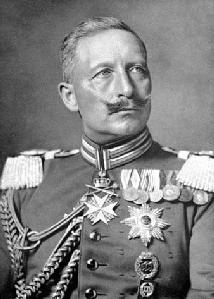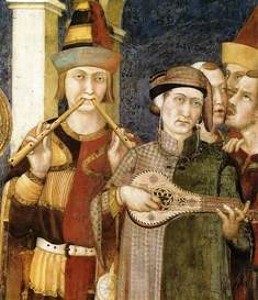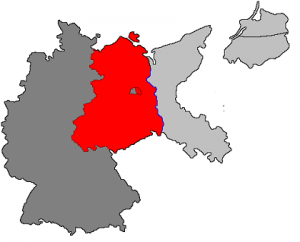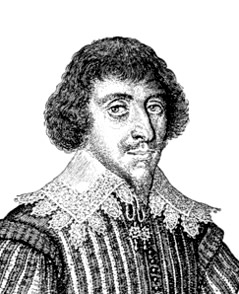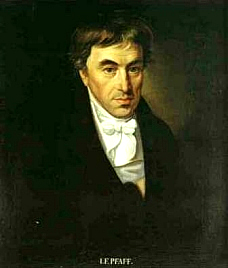Each country has its own set of cultural values making it special: language, cuisine, traditions, etc. Dress is also a national peculiarity. Speaking of Germany, Bavaria in particular, a Dirndl dress and Lederhosen are the typical traditional pieces of clothing. Dirndl Until the 16th century, farmers and people of the lower classes used to wear … [Read more...]
Keeping Up Traditions In Germany
German customs and traditions take a very important place in everyday life. Traditions mean integration. People in Germany and other countries create their own customs and rituals in their strong drive to build community around themselves, such as celebrating certain occasions, cooking definite dishes for some holidays, wearing certain clothes on … [Read more...]
Women in Post-War Germany
Post-War life for German women was harsh. Trümmerfrau (literally translated as ruins woman or rubble woman) is the German-language name for women who, in the aftermath of World War II, helped clear and reconstruct the bombed cities of Germany and Austria. With hundreds of cities having suffered significant bombing and firestorm damage through … [Read more...]
Women in Nazi Germany
The Nazis had very firm ideas about the role of women in Germany. Hitler thought that the population of Germany had to increase for the country to become more powerful. Therefore women were forced to give up work and have children. On 5th July 1933 the Law for the Encouragement of Marriage was passed. This act gave all newly wed couples a loan of … [Read more...]
German Women and 3 K’s
German women in the past and Kaiser's neat definition of the women's role in a society Back in the 19th century, Kaiser Wilhelm II defined a role for women (later taken over by the Nazis) as "Kirche, Küche, Kinder" (church, kitchen, children.) This definition could only appear in such a country as Germany where the women's movement has always been … [Read more...]
German Mysteries – the Mirror of German Culture and History
Lots of mysterious legends and myths have sprung up throughout the centuries on German lands. All of these fairy-tales and true stories have influenced German culture - art and literature - and enriched German history by portraying German streets, cities, castles and palaces as magical and mysterious buildings and places. One of the mysterious … [Read more...]
German Minnesingers
Like in many other European cultures German poetry and music were derived from medieval ages of single performers whose life has enriched the pool of national legends and myths: it is not doubt that everyone has heard about minstrels and minnesingers who inspired their audience with romantic world of never-ending love and devotion, patriotism and … [Read more...]
East Germany
What is 'East Germany'? This question arises not just from political background of the country, but historical, too. Postwar society used to name Soviet GDR as 'East Germany': lands of Prussia, Silesia and Pomerania belonged to former GDR and located in the east of the Oder. Historically these lands were inhabited by Germans, but after the World … [Read more...]
December 23 in German History
December 23, 1597 Birth of Martin Opitz in Bunzlau, Silesia (now Poland). The poet and theoretician, Opitz was a member of an important literary society of his times, the "Fruchtbringende Gesellschaft". In his most important theoretical work Buch von der deutschen Poeterey (1624) he established standards for German poetry. For his … [Read more...]
December 22 in German History
December 22, 1694 Birth of Hermann Samuel Reimarus in Hamburg, Germany. Reimarus was a Deist who taught at a Gymnasium in Hamburg. Though he published theological works during his lifetime, his lifetime work, Apologie oder Schutzschrift die vernunftigen Verehrer Gottes, was yet unpublished at the time of his death. Gotthold Lessing was the … [Read more...]
- « Previous Page
- 1
- …
- 125
- 126
- 127
- 128
- 129
- …
- 139
- Next Page »
